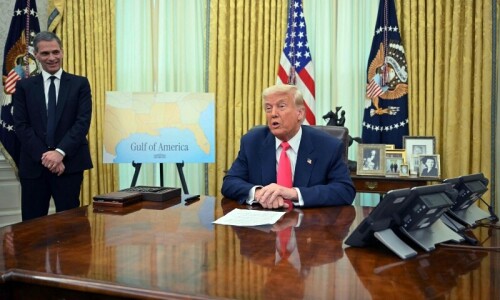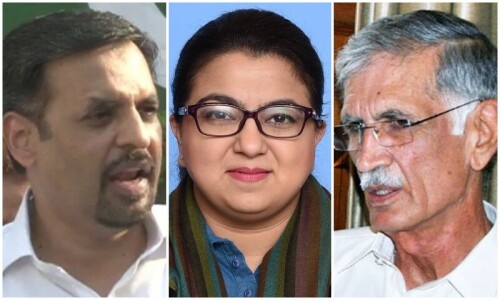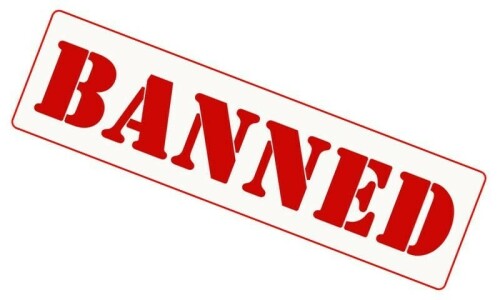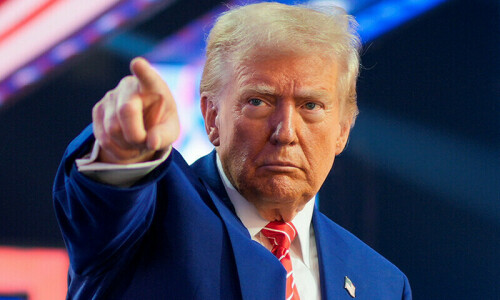KARACHI: There was an unusual stock notice by an unusual company about an unusual business move last Friday.
Modaraba Al-Mali, a small entity with market capitalisation of just Rs148 million, told investors that it’s made an “arrangement” with Drekkar Kingsway Ltd (DKL) that will allow the Islamic finance company to revive the listed but completely dormant entity and restore its “going concern assumption”.
Modaraba Al-Mali, managed by Assetplex Modaraba Management Ltd, also gave a specific date — April 30, 2022 — for the complete revival of DKL under its novel business plan. “[The] financial impact (i.e. impact on net profitability) of this transaction on [Modaraba Al-Mali] will be around Rs100m,” it added.
It sounds like a typical investment banking deal but leaves one wondering about many missing pieces of the puzzle.
For example, how will a modestly sized Modaraba — which ranks 17th in terms of total assets among the 31 listed Modarabas with the sector-wide weight of less than 0.1pc in the KSE-100 index — revive within six months a paper company that’s barely dodged a winding-up petition and is still on the stock exchange’s defaulters’ counter?
Says DKL has agreed to make it happen by April 30
“As a specialised corporate restructuring and Islamic venture vehicle, we believe in mobilising resources and providing shareholders with value creation opportunities,” Aftab Ahmad Chaudhry, CEO of Modaraba Al-Mali, told Dawn.
His company approached the sponsors of DKL and convinced them to vote for its business revival plan and grant management control and board seats. “Shares become worthless in a listed shell company. Only a revival will give its shareholders the opportunity to unlock their investment and exit,” said Mr Chaudhry, who previously served as managing director of both Islamabad and Lahore stock exchanges.
After getting the sponsors and other shareholders on board, Mr Chaudhry brought in another investor and submitted the business plan to the Islamabad High Court, which recently dismissed the winding-up petition against DKL.
“Next up, we’ll extend a directors’ loan. My Modaraba and the incoming sponsor will initially contribute Rs100m each,” he said.
Mr Chaudhry hasn’t injected any equity into DKL yet. Corporate rules say that equity can’t be injected into a company arbitrarily unless all shareholders are offered an equal opportunity to increase their stakes in the same proportion. Since the company has no assets and can’t borrow from banks, the directors’ loan was the only option for Mr Chaurdhry’s Modaraba to provide the company with liquidity.
So how will DKL revive after the injection of Rs200m in the form of debt?
In walks the new sponsor Farhan Abbas Sheikh, CEO of Oilboy Ltd, an importer and distributor of unregulated energy products, particularly coal, with assets of more than Rs3 billion.
DKL was originally listed in the 1990s as an engineering firm to manufacture electrical appliances.
Meanwhile, DKL will change its name to Oilboy Energy Ltd, increase its authorised capital to Rs1.6bn and change the object clause of its memorandum of association.
Afterwards, the rechristened entity will announce a rights issue, which means existing shareholders will get the right, but not the obligation, to buy new shares at a discount to the prevailing price. In case the rights issue remains unsubscribed, the directors will have the authority to inject funds either themselves or through their associates. The board may also vote for converting the Rs200m directors’ loan into equity.
But why is Mr Chaudhry taking such a roundabout route to revive a dormant company? For instance, why don’t he and Mr Sheikh take over DKL by buying a majority stake? Or more simply, why doesn’t Mr Chaudhry help Mr Sheikh get his already up-and-running private company listed on the stock exchange?
To the first question, Mr Chaudhry says his company wants to steer clear of the takeover laws, which apply at 30pc shareholding.
As for the second question, he says even a shell company that’s listed but exists only on paper is currently valued around Rs20m. “The value is of the listing status. Taking a company public costs 6-8pc of the funds to be raised. This means a company may have to spend Rs30m-40m on various counts if it wants to raise Rs500m,” he said.
Published in Dawn, December 12th, 2021














































